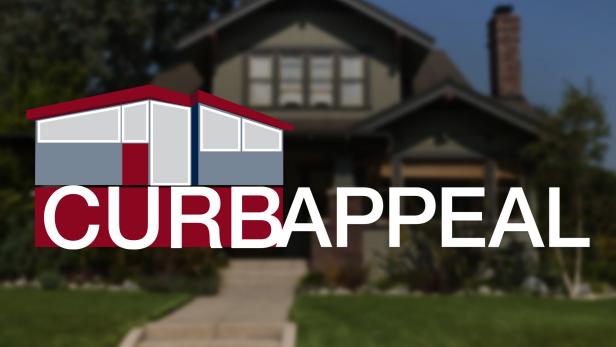HGTV (Home and Garden Television) has long been a staple for homeowners, design enthusiasts, and DIY lovers. Since its inception in 1994, the network has been synonymous with home improvement, real estate, and lifestyle programming. Over the years, HGTV has cultivated a diverse lineup of shows that have inspired millions of viewers to revamp their living spaces, tackle renovation projects, and even dabble in real estate investments. However, recent programming trends have sparked considerable debate among its loyal fanbase, who feel that the network has strayed from its original mission and is becoming increasingly repetitive.

The Evolution of HGTV Programming
Initially, HGTV was celebrated for its diverse range of content, which balanced educational design and renovation shows with real estate and gardening programs. Shows like Design on a Dime, Room by Room, and Gardening by the Yardoffered practical, budget-friendly advice that viewers could directly apply to their own homes. This mix of practical home improvement and design content was a significant part of the network’s charm and appeal.
In recent years, however, the network’s focus has shifted significantly towards competitive reality TV shows. Programs like Fixer Upper and Property Brothers paved the way for a surge of home renovation competitions and reality-style shows. While these series have their own loyal followings and undeniable entertainment value, many fans feel that HGTV’s current lineup has become saturated with similar formats, lacking the educational substance and variety that initially set the network apart.
Growing Dissatisfaction Among Viewers
The growing emphasis on competition-based shows has led to an increasing sense of dissatisfaction among long-time viewers. Social media platforms and online forums are brimming with complaints about the perceived monotony of HGTV’s current programming. Fans argue that the network has abandoned its roots, focusing too much on dramatic home makeovers and reality TV-style narratives at the expense of practical, informative content.
Many are voicing their frustration, saying that the network is now filled with shows that feel more like entertainment rather than providing useful, actionable advice. The once-varied content is now dominated by similar formats: house-flipping competitions, real estate hunts, and dramatic reveals, with little attention paid to smaller-scale projects or hands-on DIY tips that viewers can actually replicate.
Calls for a Return to Educational Content
Amidst this growing dissatisfaction, a loud and clear call for change is emerging from HGTV’s audience. Viewers are pleading for a return to the network’s earlier emphasis on educational programming. They want to see shows that delve into the nuts and bolts of design, featuring practical advice for home improvement and renovations on a budget. There’s a yearning for more instructional series that cater to everyday homeowners who may not have the luxury of a massive renovation budget or access to professional contractors.
The audience is also asking for more transparency in costs and processes. Many current shows often gloss over the finer details of renovation budgets and labor, leaving viewers with an unrealistic picture of what it truly takes to transform a space. There’s a strong demand for programming that addresses common challenges faced by homeowners, providing tips and tricks that can be applied without breaking the bank.
The Missing “G” in HGTV
One of the most frequent complaints is the noticeable absence of gardening content on the network—a core component that once defined HGTV. Despite the channel’s name, dedicated gardening shows have been almost entirely phased out in recent years. This shift has left a significant portion of the network’s original audience feeling neglected. Many viewers have been vocal in their calls for a revival of gardening-focused content, lamenting the lack of shows that teach viewers how to cultivate their outdoor spaces.
Gardening enthusiasts have taken to social media to express their frustration, using hashtags like #BringBackTheG and #GardenOnHGTV to advocate for more plant-focused programming. They argue that gardening is an integral part of home improvement and lifestyle, offering not only aesthetic benefits but also mental and physical health advantages. A resurgence of gardening content could cater to a diverse audience, from seasoned gardeners to beginners looking to start small projects.
HGTV has recently hinted at a potential revival of one of its classic and beloved shows, “Curb Appeal.” This news has excited long-time fans who fondly remember the program’s focus on transforming the exteriors of homes to boost their visual appeal and market value. With the network seemingly responding to demands for more educational and practical programming, bringing back Curb Appeal could be a step toward addressing viewer dissatisfaction and returning to the network’s original mission.
The History of Curb Appeal

Curb Appeal made its debut on HGTV in 1999, quickly becoming a staple for viewers interested in exterior home improvement. The show was designed to help homeowners enhance their property’s curb appeal by making strategic changes to their home’s exterior. Each episode followed a team of experts as they evaluated a home’s front yard, façade, and overall street presence, developing a plan to address aesthetic issues and create a more welcoming and attractive exterior.
Show Format and Focus
The show typically featured one home per episode, with the design team working within a set budget to tackle various projects, such as landscaping, painting, updating walkways, and adding new architectural features. The focus was not only on making the home look beautiful but also on making improvements that would increase its value and appeal to potential buyers. The transformations were dramatic, yet realistic and achievable, providing viewers with plenty of inspiration and practical tips to implement in their own homes.
Hosts and Impact
Over its run, Curb Appeal had several hosts who brought their unique flair to the series:
- Rick Spence (1999-2002): The original host who helped set the foundation of the show with his approachable personality and practical advice.
- Clive Pearse (2002-2005): Known for his engaging presence, Pearse added a lively dynamic to the transformations.
- John Gidding (2009-2012): An architect and designer, Gidding brought a sophisticated touch to the show, incorporating his architectural expertise into each project.
The show was praised for its ability to make exterior design accessible and engaging, demystifying the process of home improvement for its audience. It resonated with viewers who were looking for realistic ways to enhance their homes without resorting to massive, costly renovations.
Why It Ended
Despite its popularity, Curb Appeal ended its original run in 2012. The decision to cancel the show was part of a broader shift in HGTV’s programming strategy, which began focusing more on high-drama, reality-style content that revolved around entire home makeovers and competitive elements. The network started favoring shows with a faster pace and more dramatic reveals, often at the expense of the more educational and methodical content that Curb Appeal offered.
As HGTV transitioned to this new format, shows that focused on smaller, more specialized aspects of home improvement, like Curb Appeal, were gradually phased out. This move left a void in the network’s lineup, particularly for viewers who appreciated the more down-to-earth, instructive style that the show provided.
The Anticipated Revival
Now, with HGTV hinting at a revival of Curb Appeal, fans are eagerly anticipating the return of the show that many feel was a cornerstone of the network’s original charm. The revival is expected to bring back the same focus on enhancing the exterior of homes, possibly with some modern twists and updates to cater to contemporary tastes and trends. There’s also hope that the new version will continue to emphasize budget-friendly and realistic projects, making the show relatable and useful for a wide audience.
The potential return of Curb Appeal would be a welcome change for HGTV, signaling a move back towards more informative and educational content. It would also address one of the major criticisms that fans have expressed in recent years: the network’s departure from practical, detailed home improvement programming. By bringing back this beloved series, HGTV has the opportunity to re-engage with its core audience, reminding them of why they fell in love with the network in the first place.



0 Comments